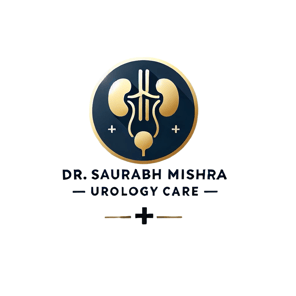Male infertility and Sexual Dysfunction
Overview of Male Infertility: Understanding the basic mechanisms and causes, including hormonal imbalances, physical blockages, and genetic issues.
Diagnostic Techniques:
Semen Analysis: Evaluating sperm count, motility, and morphology.
Hormonal Profiles: Testing for testosterone, FSH, and LH levels to assess testicular function.
Genetic Testing: Identifying genetic disorders like Klinefelter syndrome or Y chromosome microdeletions that affect fertility.
Advanced Imaging: Ultrasound or MRI to detect structural abnormalities.
Treatment Options:
Medication: Treating hormonal imbalances or infections that might be affecting sperm production.
Surgical Interventions: Procedures like varicocelectomy to remove enlarged veins in the scrotum or TESE for sperm retrieval.
Assisted Reproductive Technologies (ART): Techniques such as IVF or ICSI where sperm is directly injected into an egg.
Lifestyle and Environmental Factors: The impact of lifestyle choices, such as diet, exercise, and exposure to environmental toxins, on fertility.
Counseling and Support: Psychological support and counseling options for dealing with the stress and emotional impact of infertility.
Dr. Mishra’s approach would likely integrate these aspects with case studies, current research, and patient anecdotes to provide a comprehensive educational experience. If you're interested in accessing specific resources like lectures, publications, or online courses by Dr. Mishra, I can help you find more information on how to engage with his content.
Male infertility
Male sexual Dysfunction
Dr. Saurabh Mishra's approach to educating about male sexual dysfunction likely covers a range of topics to provide a comprehensive understanding:
Types of Male Sexual Dysfunction:
Erectile Dysfunction (ED): Difficulties achieving or maintaining an erection.
Premature Ejaculation (PE): Ejaculating earlier than desired, often without much sexual stimulation.
Delayed Ejaculation: Inability to ejaculate or significant delay despite stimulation.
Reduced Libido: Low sexual desire or interest in sexual activity.
Causes and Risk Factors:
Physiological Causes: Cardiovascular diseases, diabetes, neurological disorders, hormonal imbalances.
Psychological Causes: Stress, anxiety, depression, relationship issues.
Lifestyle Factors: Smoking, alcohol use, drug use, lack of exercise.
Diagnostic Approaches:
Medical History and Physical Examination: To identify underlying conditions or factors.
Laboratory Tests: Hormonal profiles, blood sugar levels, cholesterol tests.
Psychological Assessment: Evaluating mental health conditions that might contribute to dysfunction.
Treatment Strategies:
Medications: PDE5 inhibitors for ED, SSRIs for PE, and other relevant medications.
Therapies: Psychological counseling, couple’s therapy, sex therapy.
Lifestyle Modifications: Dietary changes, exercise programs, smoking cessation.
Surgical Options: Penile implants or vascular surgeries in severe cases.
Prevention and Education:
Public Awareness: Educational campaigns about the importance of a healthy lifestyle, regular check-ups, and seeking help when needed.
Research Updates: Sharing the latest research findings and advancements in treatment options.
Understanding and addressing male sexual dysfunction requires a holistic approach that considers both physical and psychological components. Effective treatment plans are often personalized, taking into account the underlying causes and the individual’s specific health needs.
